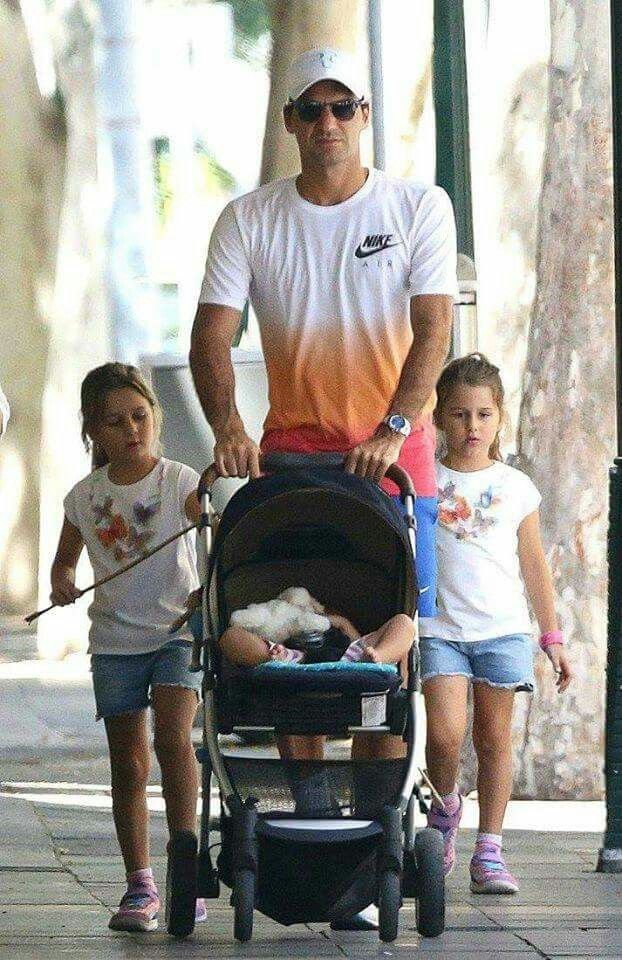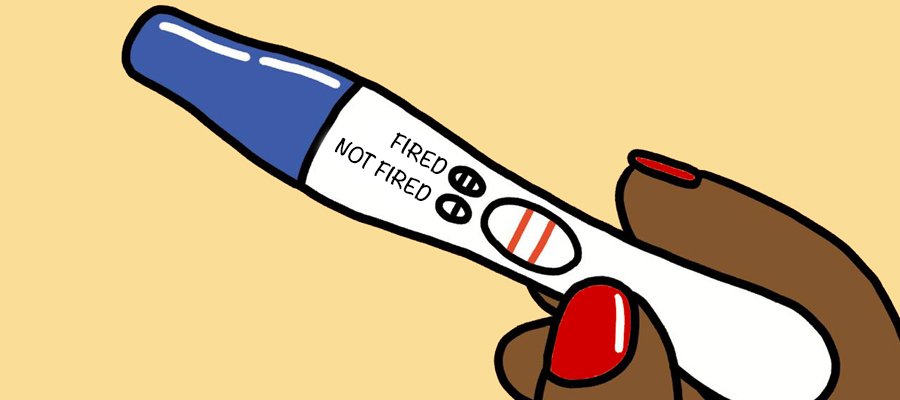I Get What Serena Is Saying
Two phenomenal athletes have recently announced their retirement from professional tennis.
Forty-one year old Serena Williams was first, back in August, and now 41-year-old Roger Federer has joined her.
As a fan of both of these players, I am not surprised. They’ve played at the elite level (and dominated the sport) for decades.
But something Serena said in Vogue when discussing her decision stood out to me:
“Believe me, I never wanted to have to choose between tennis and a family. I don’t think it’s fair. If I were a guy, I wouldn’t be writing this because I’d be out there playing and winning while my wife was doing the physical labor of expanding our family.”
Her comment sparked a lot of criticism on social media, too.
But as a woman and a mother, I understood what she meant.
And her comment made me curious…
I thought about Serena’s career over the past few years.
She gave birth (by emergency C-section) on September 1, 2017.
The year before she became pregnant, she was dominating women’s tennis.
She won Wimbledon, and made it to the finals of both the French Open and Australian Open. She was also a semi-finalist at the US Open.
Her record that year was 38-6 and her prize money was $6.8 million.
She began 2017 ranked as the #2 female tennis player in the world.
She won the Australian Open in January (her 23rd Grand Slam) – and later revealed she had been two months’ pregnant at the time.
But her pregnancy sidelined her for most of 2017, and her ranking dropped to #22 as a result.
And after a life threatening experience after giving birth, Serena fought hard to regain her place at the top of the tennis world.
In 2018, she managed to push her way to the 4th round in the French Open.
Mothers around the world cheered Serena on as she made it to the finals of both Wimbledon and the US Open – less than a year after she gave birth.
Serena has inspired girls and women for decades
In 2019, it was clear she wasn’t giving up.
Again, she made it to the finals of both Wimbledon and the US Open.
But it’s hard to argue that the pregnancy and its effects on her health didn’t affect her game.
Pregnancy takes over a woman’s body well beyond nine months – and Serena’s comments reflected that her career might have been different had she not gone through the physical stress and recovery that comes with pregnancy.
But would it be different if she were a guy?
Well, let’s examine Roger Federer’s track record.
He is the father of four – two sets of twins.
He became a father in 2009, when his first set of twins were born on July 23.
Six weeks before they were born, he won the French Open.
Two-and-a-half weeks before they were born, he won Wimbledon.
Three weeks after they were born, he was playing in the finals of the US Open.
He played the major tournaments that year, ending with a 61-12 record, and ranked the #1 male tennis player in the world.
The following January (when his twins were just six months old) he won the Australian Open.
He made it to nine finals that year, winning five, and finished the year with a 65-13 record.
Not bad for a new father of two.
Imagine what his record might have looked like if he had to take time out for pregnancy and recovery after birth.
Let’s fast forward to 2014, when he welcomed his second set of twins. They were born on May 6.
The month before, he made it to the finals in Monte Carlo, and a month after they were born, he won a tournament in Germany, then made it to the finals at Wimbledon.
He continued playing that year – winning and making it to the finals of many tournaments.
His record in 2014 was 73-12, and he ended the year ranked #2 in the world.
Over his career, Roger had 20 Grand Slam wins and career prize money of $130 million.
Serena had 23 Grand Slam titles, and career prize money of nearly $95 million.
But what would have happened to Roger’s career, endorsements, and legacy if he had been out of the game for more than two years around the birth of his children?
How would his body have recovered from the births, the breastfeeding, and possible IVF procedures?
This is what Serena is talking about.
Sure she made the choice to become a parent. But some people don’t realize how the choice to become a parent affects a woman’s career.
And it’s not just athletes.
From the moment a woman gets pregnant, bias kicks in.
As the New York Times reported, bias against mothers is one of the strongest forms of bias against women, and lawsuits indicate the scale and scope of the discrimination mothers face.
The bias can be subtle. In the corporate world, some women find themselves suddenly being left out of projects or training opportunities. They may be on the receiving end of jokes about “pregnancy brain” and comments questioning their dedication to work – or assumptions that they won’t return to work.
The bias can also be overt. Some women face bullying, harassment, and even lose their jobs after announcing their pregnancy.
This stress can affect a woman’s health, her pregnancy, and the health of her baby.
And redundancy is a major issue when women take maternity leave – especially the longer her maternity leave is.
The Harvard Business Review shared evidence (from a variety of countries) that revealed the longer new mothers were away from paid work, the less likely they were to be promoted, move into management, or receive a pay raise once their leave was over.
They also found mothers were seen as less committed to their jobs and were at greater risk of being fired or demoted.
Is it any surprise that a study by London’s South Bank University revealed that 50 percent of women believe taking maternity leave harmed their professional lives?
And while women face the motherhood penalty, many men receive the fatherhood bonus.
Research has shown that while a mother’s earnings decrease with each child, a father’s earnings increase. This gap persisted even when researchers controlled factors like experience, education, hours worked and spousal incomes.
A man who becomes a father is seen as more stable and committed.
Think about how Roger Federer’s reputation has changed since becoming a father and being labeled the “family man.” Who doesn’t want to buy pasta or a razor from this guy?
So let’s call a spade a spade.
Roger Federer is a talented, respected, and popular player, but his career, endorsements, and earnings would be different if he had been a woman with four kids.
Just like Serena’s would be different if she were a guy.
***********************************************************
Beth Collier loves writing, pop culture, and watching Serena and Roger on the court.
She also loves helping companies, leaders, and teams improve their communication (and creativity and leadership) through consulting, coaching, and workshops.
Her clients benefit from Beth’s global corporate experience, Midwestern practicality and enthusiasm, and an endless supply of pop culture references.
To find out how Beth can help you become a more confident, creative, and compelling leader – or improve communication in your company – visit www.beth-collier.com or drop her a line at beth@beth-collier.com






